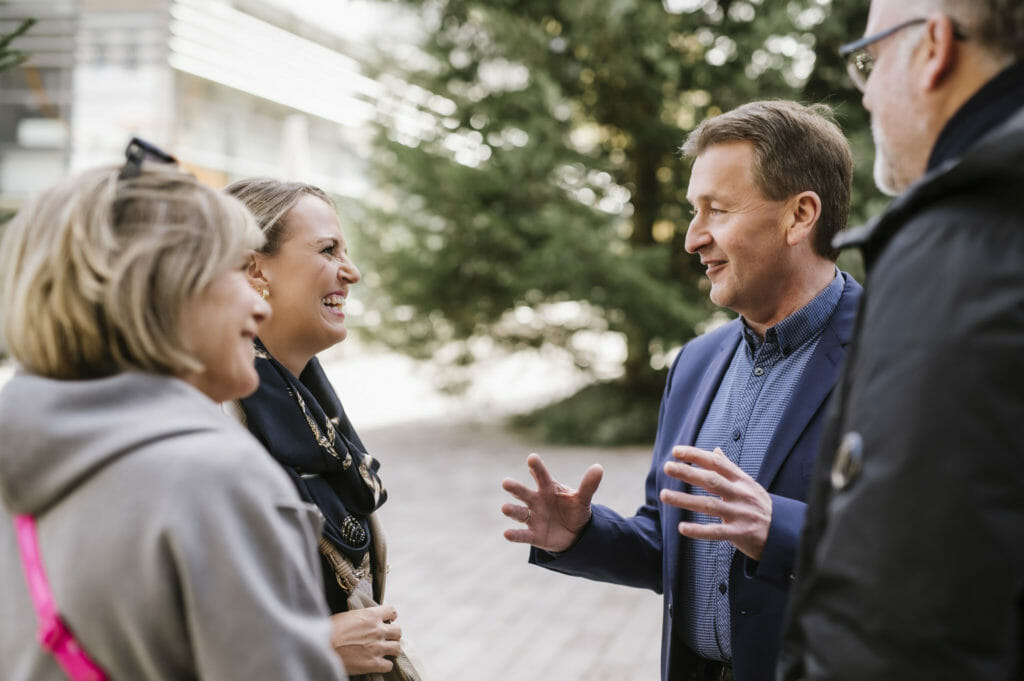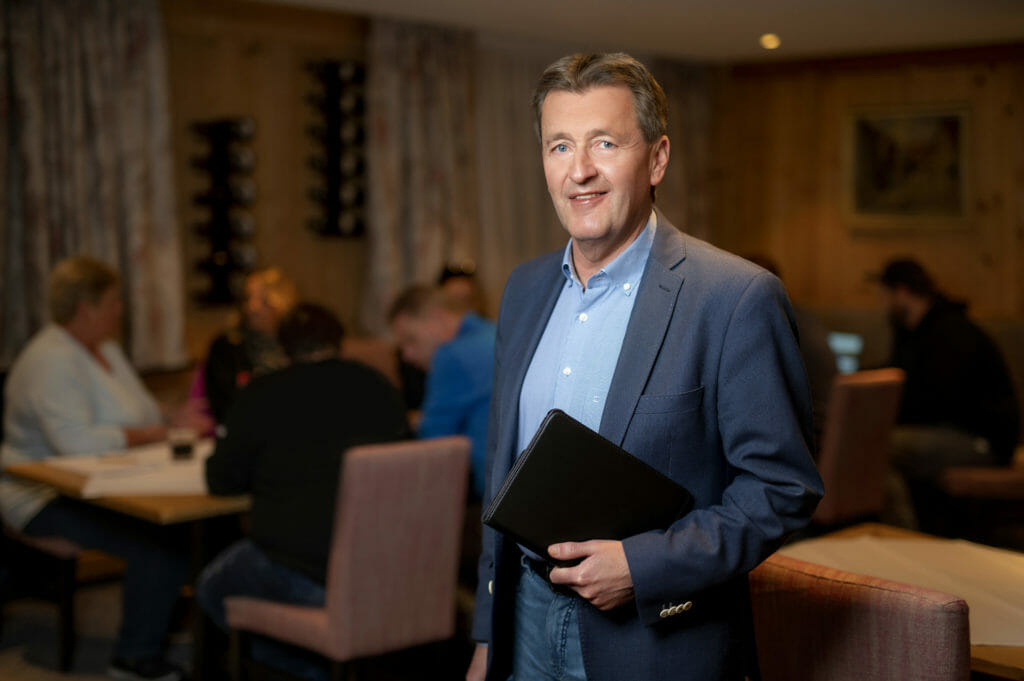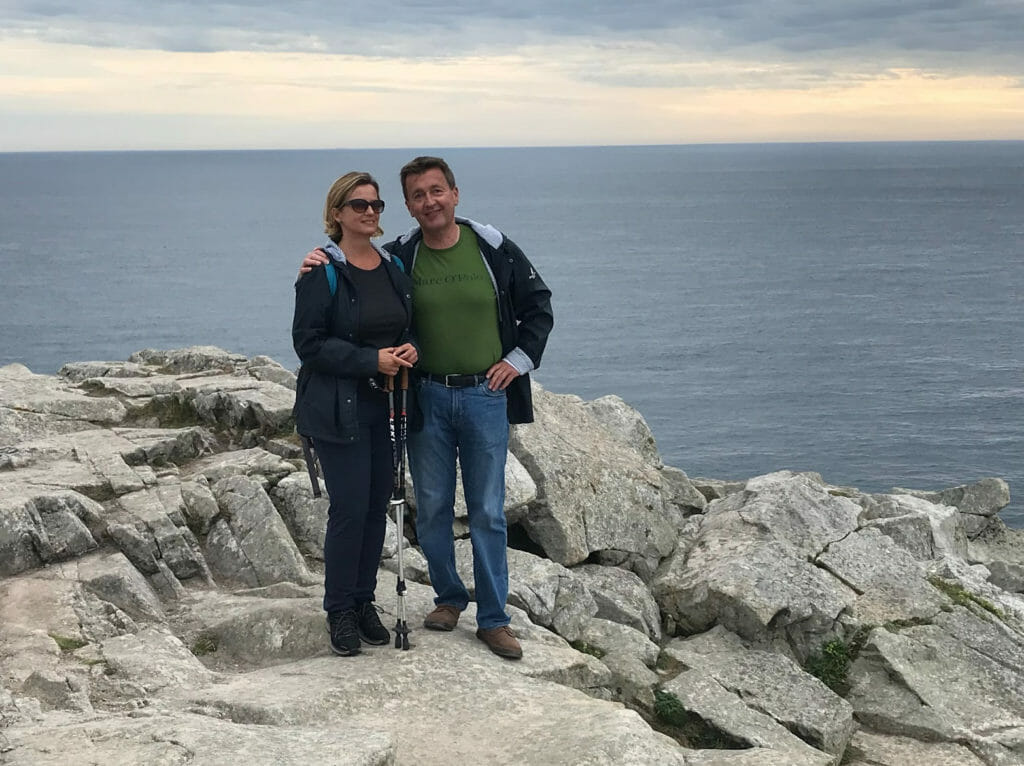Wenn Sie auf das Video klicken, nimmt Ihr Browser Kontakt zu YouTube auf. Mehr dazu in der Datenschutzerklärung.
Economy, trade and handicraft have to become a top priority in our city – only then can the grown industrial location Albstadt overcome current difficulties and become future-proof.
Strengthening of economic development
The city administration has no influence on macroeconomic developments and crises. However, it can and must do everything it can locally to create such framework conditions that safeguard existing jobs and businesses and enable the creation of new ones. Here, too, a “culture of making things possible” must be anchored in the administration.
In concrete terms, this means that the Lord Mayor is responsible for all key issues relating to the local economy – together with the business development department of the city of Albstadt and the future City-Management GmbH. The Economic Development Unit needs sufficient staffing and organizational resources to be able to actually fulfill its function of providing advice and mediation. Despite scarce financial resources, savings must not be made in this key segment – an expansion of the resources of municipal economic development and concentration on this activity is necessary. This applies both to the maintenance of existing businesses and to the provision of advice and support for start-ups and new businesses. Most importantly, economic development ensures that access to federal, state and regional funding is created. Likewise, economic development sees itself as a “guide” through the various responsibilities of the city administration. In the future, the economic development department will have interdepartmental responsibility in this area.
New interface between administration and business
The City-Management GmbH to be founded represents the interface between administration and business. This means that the private co-owners have a significant say in the direction, organization and objectives of the company’s activities. Business and commerce do business and commerce best – not administration. The administration provides the equipment and personnel, but the decisive impetus must come from the SMEs themselves.
Bureaucracy reduction and fast Internet
The city government must do everything possible to support local businesses, especially in difficult economic times. Therefore, it is necessary to ensure that in all areas where the administration has to conduct legal reviews or issue permits, such reviews are conducted in the shortest possible period of time. This is also ensured by the mayor and the economic development department across all departments. As far as possible at the municipal level, the long-promised “bureaucracy reduction” must now actually be implemented.
Promoting the local economy also includes improving the opportunities for digitization for local businesses. The basic prerequisite for future viability is that the city provides sufficient infrastructure. Together with the project partners, this requires an immediate further expansion of the digital backbone network and the city-wide enabling of connection to fast Internet, also through cooperation with other partners from industry. The topic of expanding fast Internet must be given priority.
Sufficient commercial space
Trade, industry and crafts are in some cases existentially threatened by the current economic situation. Nevertheless, it is the city’s duty to provide sufficient commercial space for those businesses that need it now or in the future. On the one hand, of course, existing commercial brownfield sites in the city are to be used. On the other hand, there is no way around the need to provide new commercial space. This applies in particular to the planned Hirnau industrial estate: With suitable measures, it will be possible here to create commercial space on the one hand, and on the other hand also to establish a “future project sustainable industrial estate”, which makes it clear that commercial use and protection of the environment are not mutually exclusive, but can go hand in hand.
More space for young companies
The nucleus of new jobs in Albstadt are start-ups. With the Technology Workshop in Tailfingen, we are pioneers here in the region – and its further expansion was and is the right thing to do. This together with the already existing partners from industry and the Albstadt-Sigmaringen University. In addition, the city must flexibly examine how and where additional space can be offered for young companies within the city area. This can be in the form of “co-working spaces” – for example, in the redevelopment of the Hufeisen in Ebingen, as well as in other locations, some of which are currently vacant.
Trade: Maintain basic supply with shopping facilities and gastronomy
As the largest city in the district, Albstadt is also the commercial center of the region. Medium-sized retailers in particular need special support in times of online shopping and “dying inner cities” – retail is also a business and therefore also a matter for the boss. There is a lot to do: Following the redevelopment of Tailfingen’s city center to date, every effort must be made to further strengthen the existing structure there and keep it alive. In addition, it is important to maintain a basic supply of shopping and gastronomy facilities in all parts of the town. The development in the Ebingen district is particularly problematic: Business vacancies and concentration on rather problematic supply structures must be remedied. The decision by the Ebingen City Council to impose a change ban on the inner city area is only the first step: the aim must be to create an attractive framework once again that makes it worthwhile for citizens to spend time in the city center and opens up the prospect of flourishing trade for traders, including in the higher-priced segment. Of course, this will have to be achieved through the consistent implementation of the new concept for Ebling’s city center together with City Management GmbH – for example, by removing the Bürgerturm bus stop from the city center and designing new attractive areas to spend time in.
At the same time, downtown retail requires good accessibility. This is where ideologies have clashed in the past: “parking spaces close to businesses or a car-free city center” are the supposed opposites. However, there is no contradiction: The administration must ensure that, on the one hand, there are sufficient visitor parking spaces close to the city center in the large districts and, on the other hand, that a larger supply of parking space – also for employees – is available in the city center. This goes hand in hand with a well-functioning public transport system and, on the other hand, with a functioning network of bicycle paths. The future lies not in ideological opposition, but in the coexistence of modes of transport, taking into account the behavior and needs of downtown visitors. The decisive factor for retailers is not what customers “could be expected” to do, but how customers actually behave – here, too, the administration must think more from the business perspective.
Favorable trade tax rate must remain favorable
The decisive framework condition for Albstadt as a business location has always been the favorable trade tax rate in the region. This is also correct, since Albstadt has disadvantages in the traffic connection compared to other municipalities. In recent years, it has become customary for individual municipal council factions to regularly call for an increase in trade tax rates during the budget debates in December. At the same time, it must be clear: Higher trade tax rates do not necessarily guarantee higher revenues for the city, especially nowadays. Rather, Albstadt’s decisive locational advantage is that industry and commerce can rely on the city’s restrained tax policy. This must remain the case in the future.
Transcript of the video above
Of course, another point is of great importance for the recruitment of skilled workers in Albstadt. We must have an adequate supply of day care centers and day care services for children. And with flexible opening hours depending on the needs of the respective employees. And this is a subject area that absolutely needs to be further developed, in which we have already been considerably active in recent years, also under pressure from the CDU parliamentary group, but where the goal for a sustainable development of living and working in Albstadt has not yet been reached. That’s where we need to continue.







